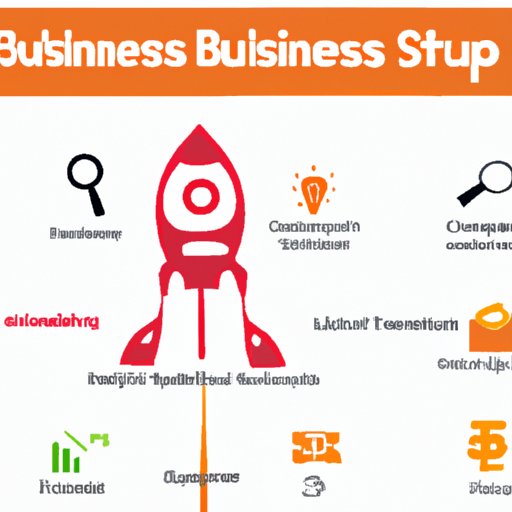Introduction
Starting a business requires careful planning and consideration of the costs involved. The amount of money needed to start up a business can vary significantly depending on the type of business, its size, and the industry it is in. In this article, we will explore the different types of funding options available for startups, the average capital requirements by industry, and the benefits and drawbacks of bootstrapping.
Outlining the Basic Costs of Starting a Business
When starting a business, there are certain expenses that must be taken into account. These include the cost of goods, rent, insurance, legal fees, accounting services, and other necessary expenses. Depending on the type of business, there may also be optional expenses such as marketing, advertising, and technology.

Exploring Different Types of Startup Funding Options
There are several different types of funding options available for startups. Traditional sources of capital include venture capitalists, angel investors, and private equity firms. Non-traditional sources of capital include crowdfunding, peer-to-peer lending, and online lenders. It is important to research all of the available funding options and understand the associated risks and rewards before making any decisions.

Examining the Benefits and Drawbacks of Bootstrapping
Bootstrapping is the process of self-funding a business with personal savings or income from a job. There are several advantages to bootstrapping, including retaining control over the business, avoiding debt, and testing the viability of the business before investing large amounts of money. However, there are also some drawbacks to bootstrapping, such as limited resources, lack of expertise, and difficulty scaling the business.
Investigating Sources of Grants and Loans for Small Businesses
In addition to traditional financing options, there are also several sources of grants and loans available for small businesses. Government grants are often offered to startups in certain industries, such as renewable energy or healthcare. Private grants are also available through organizations such as foundations and nonprofit organizations. Bank loans are another option for startups, although these typically require a good credit score and a solid business plan.

Analyzing Average Startup Capital Requirements by Industry
The amount of money needed to start a business varies greatly depending on the industry. Retail businesses typically require less capital than technology or manufacturing businesses. Healthcare businesses tend to have the highest startup costs due to the expensive equipment and supplies required. It is important to research the specific industry to get an accurate estimate of the costs involved.
Conclusion
Starting a business requires careful planning and consideration of the costs involved. Different types of funding options are available for startups, including traditional sources of capital, non-traditional sources of capital, and grants and loans. Bootstrapping can be a viable option for some businesses, but there are also drawbacks to consider. Finally, the average startup capital requirements vary greatly by industry and should be researched thoroughly before making any decisions.
(Note: Is this article not meeting your expectations? Do you have knowledge or insights to share? Unlock new opportunities and expand your reach by joining our authors team. Click Registration to join us and share your expertise with our readers.)
